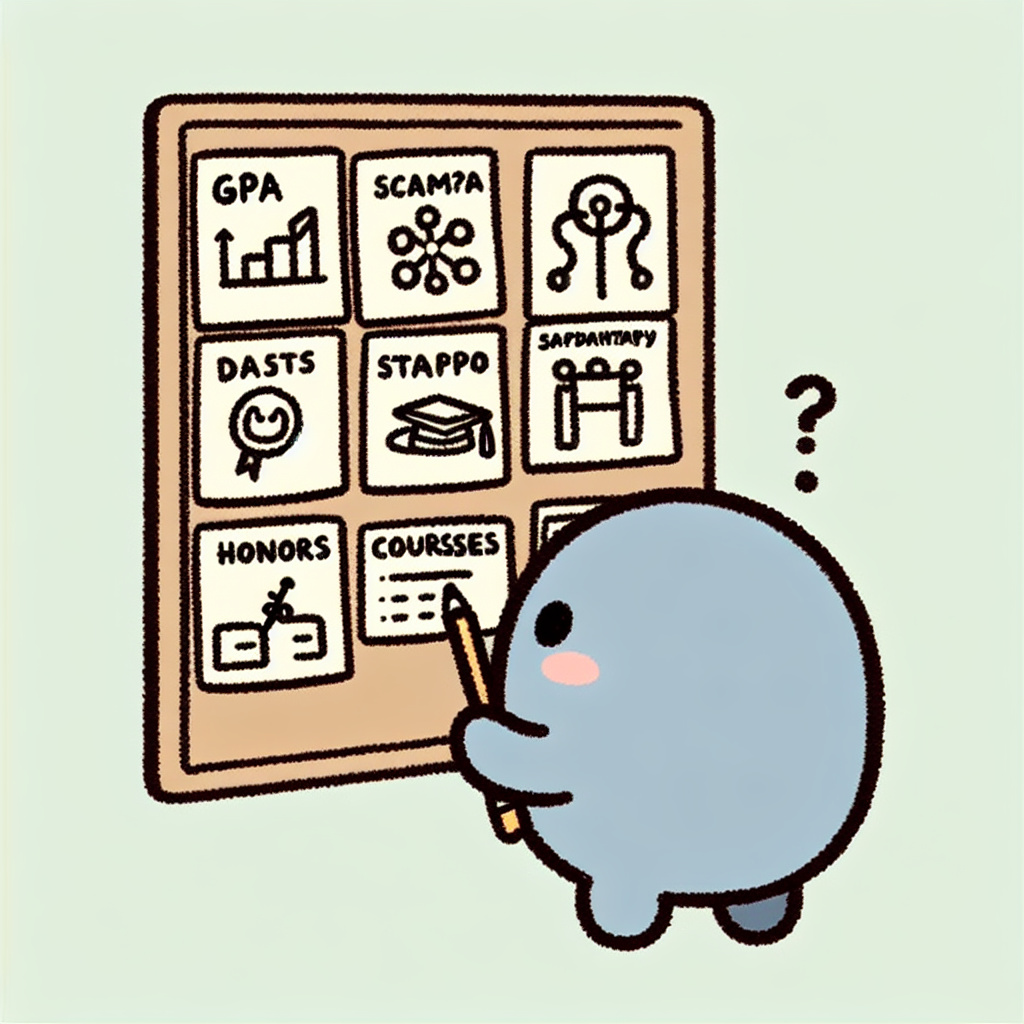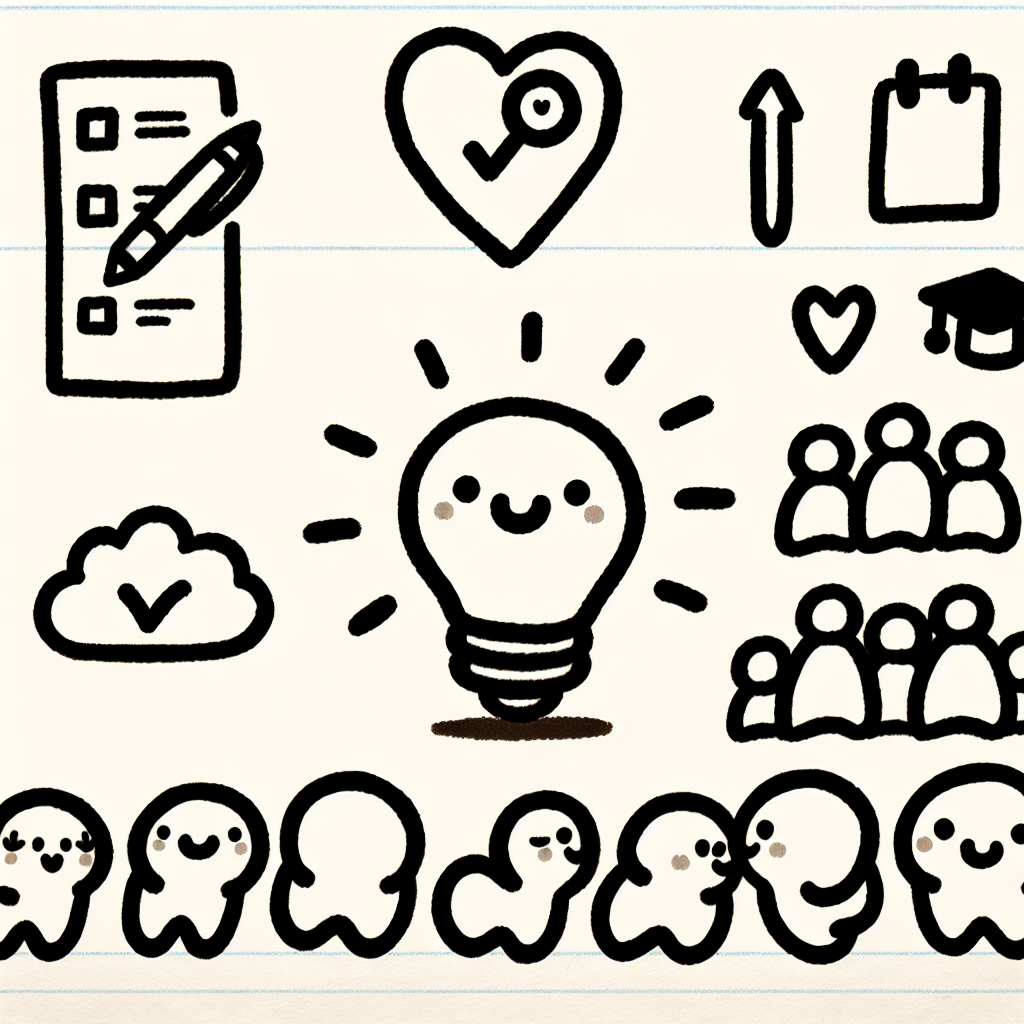How to Get Accepted: The Ultimate Guide to Strengthening Your College Application
Getting accepted into college is a multifaceted process that requires planning, self-reflection, and strategic action. This guide compiles expert recommendations and best practices from multiple academic institutions to help you build a compelling and competitive college application.
Understanding Admissions Requirements
Know the Academic Benchmarks
When learning how to get accepted to your desired college, it's crucial to understand the academic benchmarks set by each institution. Start by researching the average GPA and standardized test scores of admitted students at your target schools. This information is often available on the school's admissions website or through third-party college data platforms. For example, Lipscomb University – Admissions Tips highlights the importance of knowing the GPA and test scores expected by each college.
Taking advanced or honors courses can also strengthen your academic profile. These courses demonstrate your willingness to challenge yourself and show admissions committees that you’re capable of succeeding in a rigorous academic environment.
Plan Your Testing Strategy
Another key step in how to get accepted is planning a thoughtful standardized testing strategy. First, determine if the schools on your list require SAT or ACT scores, or if they have adopted a test-optional policy. Policies can vary widely, so verify the latest requirements directly from each college’s admissions page.
If testing is required or recommended, register for your exams early. This ensures you have enough time to retake the test if your initial scores don’t meet your target range. Planning ahead also allows you to avoid scheduling conflicts and reduce stress during application season.

🗓️ Get Organized Early
One of the most important steps in learning how to get accepted is staying organized from the start. Creating a system to manage deadlines and communications can prevent last-minute stress and ensure you don’t miss critical opportunities.
Create a College Admissions Calendar
Begin by creating a comprehensive college admissions calendar. Include all application deadlines—early decision, early action, and regular decision—for each school you’re applying to. Don’t forget to mark deadlines for scholarships, financial aid applications (such as the FAFSA and CSS Profile), and recommendation letter requests. Having these dates visually laid out helps you plan your time and prioritize tasks effectively.
Use a Dedicated Email and Tracking System
To streamline communication, set up a dedicated email account just for college applications. This tip, recommended by the University of Vermont – The Best College Application Tips From Admissions Counselors, helps you stay organized and ensures you won’t miss important messages from schools.
In addition, maintain a spreadsheet or tracking system that lists each college, application type, submission status, required materials, and key deadlines. Keeping everything in one place makes it easier to monitor your progress and stay on top of requirements as you work toward how to get accepted.

✍️ Crafting a Standout Admissions Essay
A strong admissions essay can be a deciding factor in how to get accepted to your dream school. To make yours stand out, it's important to start early and be intentional about your message.
Start Early and Revise Often
Getting a head start on your essay gives you time to reflect, write multiple drafts, and refine your ideas. Start brainstorming topics well in advance of the deadline to avoid last-minute stress. Seek feedback from teachers, counselors, or mentors who can offer constructive advice. According to Azusa Pacific University – Your College Application Checklist: 8 Tips for Success, beginning your essay early increases your chances of submitting a thoughtful and polished final version.
Be Authentic and Reflective
Admissions officers are looking for more than just accomplishments—they want to understand who you are. Share a genuine story that highlights your personal growth, values, and experiences. Avoid writing what you think colleges want to hear. Instead, focus on what makes you unique. The Harvard Graduate School of Education – 5 Tips for More 'Caring' College Admissions advises students to be authentic and self-reflective rather than trying to conform to expectations. Being honest and introspective in your writing is essential when learning how to get accepted.

📝 Letters of Recommendation
Choose Recommenders Thoughtfully
To improve your chances of getting accepted, choose recommenders who know you well and can speak in detail about your academic abilities, character, and achievements. Teachers, coaches, or mentors who have seen your growth and dedication are ideal. Help them write a strong letter by providing a resume or a list of accomplishments that highlight your skills and contributions.
Ask Early and Follow Up Politely
Timing is crucial when figuring out how to get accepted. According to Lipscomb University – Admissions Tips, it's important to seek letters of recommendation early. Recommenders need adequate time to write thoughtful, personalized letters. Make sure to communicate all relevant deadlines clearly and follow up respectfully to ensure the letter is submitted on time.

💼 Activities and Extracurriculars
When considering how to get accepted, admissions officers look closely at your activities and extracurriculars to understand your interests, commitments, and character. Rather than listing every club or event you've ever participated in, focus on demonstrating depth over breadth.
Show Depth Over Breadth
Long-term involvement in a few meaningful activities is more impressive than shallow participation in many. Colleges value sustained commitment that shows passion and growth. For example, staying with a community service organization for several years and eventually taking on a leadership role demonstrates initiative and dedication. Highlight any responsibilities you've held, changes you've implemented, or impact you've made.
Include Work, Family Responsibilities, and Volunteering
Not all extracurriculars take place at school. If you work part-time, help care for siblings, or volunteer regularly in your community, these are important to include. Admissions officers understand that meaningful commitments can take many forms, and they appreciate students who balance responsibilities outside the classroom. Be sure to provide context to help them understand your situation and contributions.
In the process of figuring out how to get accepted, showcasing who you are through your authentic commitments—academic and otherwise—can make a significant difference.

💰 Understanding Financial Aid and Scholarships
One important part of how to get accepted is understanding and preparing for financial aid and scholarships. Getting a handle on these resources early can significantly impact your ability to afford college and make you a more competitive applicant.
Start the FAFSA and CSS Profile Early
The Free Application for Federal Student Aid (FAFSA) typically opens on October 1 each year. Completing it as early as possible ensures you meet important deadlines and maximize your eligibility for federal, state, and institutional aid. To fill out the FAFSA, you’ll need information such as your Social Security number, federal income tax returns, W-2s, bank statements, and records of investments.
Additionally, some schools require the CSS Profile, a financial aid form used by many private colleges to award non-federal aid. Check the financial aid pages of the schools you’re applying to and note their specific requirements and deadlines.
Apply for Scholarships Proactively
Applying for scholarships is another key step in learning how to get accepted. Many institutions, including Azusa Pacific University, encourage applicants to understand the financial aid process thoroughly. Start early by searching for scholarships from a wide range of sources, including your high school, local organizations, and national databases.
Use scholarship search engines to identify opportunities that match your background, interests, and academic goals. Don't overlook smaller, local scholarships—they may have less competition and can add up over time. Keep track of deadlines and tailor your applications to each specific scholarship to increase your chances of success.

🕰️ Time Management and Application Momentum
Effectively managing your time is essential when learning how to get accepted. Building a consistent routine helps maintain momentum and reduces the stress of looming deadlines.
Create a Weekly Application Schedule
Setting aside dedicated time each week for application-related tasks provides structure and clarity. According to Gonzaga University – 5 Tips for Starting Your College Application, establishing a weekly schedule ensures steady progress and prevents last-minute rushes. Consistency is key: assign specific days and times to work on essays, gather recommendation letters, or fill out forms.
Collaborate With Peers
Working with others can boost motivation and provide valuable feedback. Forming a small group of peers allows you to review each other’s essays, share helpful resources, and keep each other accountable. This collaborative approach not only improves the quality of your materials but also makes the application journey more engaging and less isolating. When understanding how to get accepted, peer support can be a powerful tool.

🧠 Mindset and Wellness
When considering how to get accepted, maintaining a healthy mindset and prioritizing wellness are often overlooked but essential components.
Practice Self-Care
Pursuing acceptance—whether into a school, program, or opportunity—can be stressful. To avoid burnout, it's important to balance your workload. Make time for adequate rest, eat nutritious meals, and step away periodically to recharge. These basic self-care practices help you stay focused and sustain your energy throughout the process.
Be Resilient and Open
Rejection is a common part of any application process and does not define your abilities or potential. Developing resilience helps you move forward with confidence. Stay open to a range of schools or opportunities rather than narrowing your focus to just one. Flexibility can lead to outcomes that are just as fulfilling, even if they weren't part of your original plan.

✅ Final Checklist Before Submitting
Before hitting submit, it's essential to go through a final checklist to improve your chances of success in how to get accepted.
- Proofread all components of your application: Carefully review your personal statement, essays, and any short responses for grammar, clarity, and tone. Typos and awkward phrasing can leave a poor impression on the admissions committee.
- Double-check deadlines and submission confirmation: Confirm the exact deadline for each school or program and ensure you've submitted all parts of your application. After submission, look for confirmation emails or status updates to verify your materials were received.
- Review financial aid forms and ensure all documents are uploaded: Make sure all required financial aid forms—such as the FAFSA or CSS Profile—are complete and submitted. Upload any supporting documents, such as tax returns or verification forms, as required by the institution.
Completing these steps helps ensure that your application is thorough, accurate, and aligned with the best practices for how to get accepted.

Resources Cited
The following resources were referenced to provide accurate and practical advice on how to get accepted into college:
- Lipscomb University – Admissions Tips: Offers insights into what admissions officers are looking for and how to strengthen your application.
- Azusa Pacific University – Your College Application Checklist: 8 Tips for Success: Provides a step-by-step guide to ensure every part of your application is complete and competitive.
- University of Vermont – The Best College Application Tips From Admissions Counselors: Shares expert advice from admissions counselors on how to get accepted by presenting a strong personal narrative.
- Harvard Graduate School of Education – 5 Tips for More 'Caring' College Admissions: Highlights the importance of character and community engagement in the admissions process.
- Gonzaga University – 5 Tips for Starting Your College Application: Offers foundational tips to help students begin their applications on the right track.
These sources provide valuable strategies and perspectives for students seeking guidance on how to get accepted into their desired colleges.







.png)






